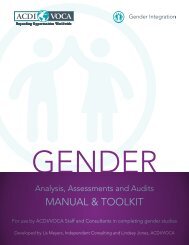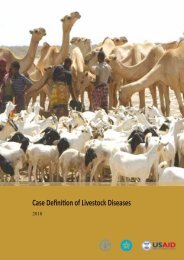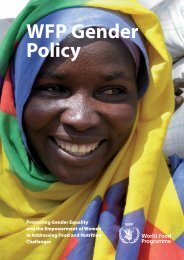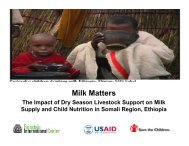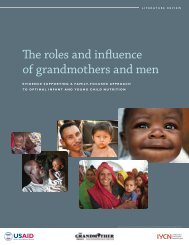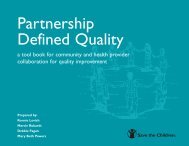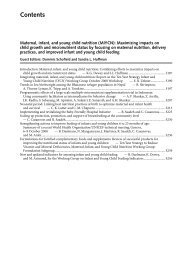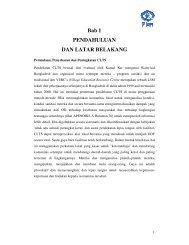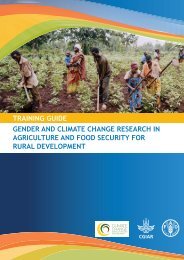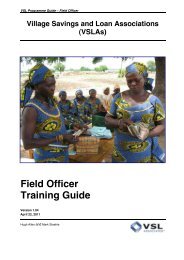Module 2. Theorethical Concepts of Gender - FSN Network Portal
Module 2. Theorethical Concepts of Gender - FSN Network Portal
Module 2. Theorethical Concepts of Gender - FSN Network Portal
You also want an ePaper? Increase the reach of your titles
YUMPU automatically turns print PDFs into web optimized ePapers that Google loves.
Mainstreaming <strong>Gender</strong> into Water, Sanitation and Hygiene (WASH) Programs<br />
<strong>Module</strong> 2: Theoretical <strong>Concepts</strong> <strong>of</strong> <strong>Gender</strong><br />
Lesson 9: Different Approaches to <strong>Gender</strong> and Development: a Historical Understanding<br />
• the genesis <strong>of</strong> a stronger emphasis on removing discrimination and, by<br />
extension, improving women’s human rights.<br />
Men’s Involvement in GAD<br />
The impetus for involving men in GAD work is based on the recognition that<br />
men are part <strong>of</strong> the problem and also part <strong>of</strong> the solution. Men too pay<br />
significant costs for gender inequality, particularly to their emotional and<br />
physical health. <strong>Gender</strong> injustice will only stop when men join with women to<br />
put an end to it. Many men’s attitudes and behaviours will need to change in<br />
order for gender equality to be achieved. Women should work with men as<br />
decision makers and service providers.<br />
Even if the percentage <strong>of</strong> women’s share in development resources in relation<br />
to men’s share increases, there are further gains for both men and women.<br />
These gains will improve and enhance the lives <strong>of</strong> all members <strong>of</strong> the family<br />
and, in turn, all people in the society. More specifically for men, integrating<br />
women into development can <strong>of</strong>fer a number <strong>of</strong> tangible benefits. For<br />
instance, there has been a recent acknowledgement <strong>of</strong> the burden on men as<br />
the sole breadwinner, which can lead to a crisis where men are not able to<br />
provide. By reassessing gender roles and redefining relationships, men can<br />
have a partner in providing economically for the family, diminishing societal<br />
pressure on them and potentially giving them more time for other social<br />
activities.<br />
References<br />
Boserup, E 1970, Woman’s role in economic development, Allen and<br />
Unwin, London.<br />
Canadian Council for International Cooperation 1991, Two halves make a<br />
whole, balancing gender relations in development, CCIC, Ottawa.<br />
Oxfam 1994, <strong>Gender</strong> Training Manual, Oxfam, London.<br />
A Training Manual for Water Pr<strong>of</strong>essionals developed collaboratively by PROTOS and SNV, 01/02/2007<br />
<strong>2.</strong>58



